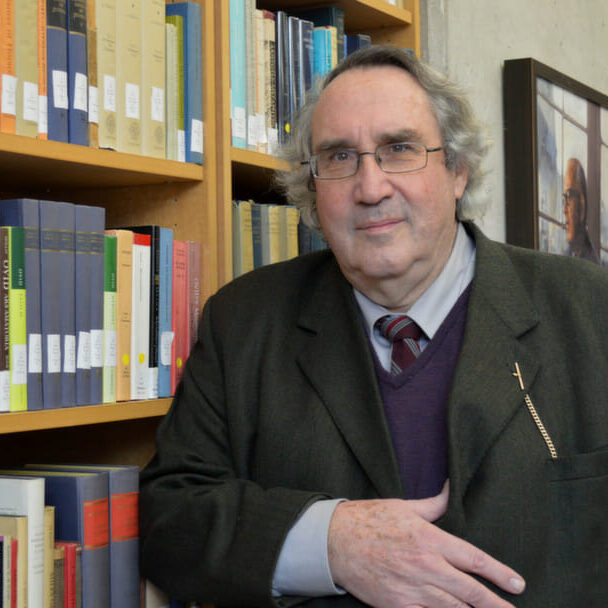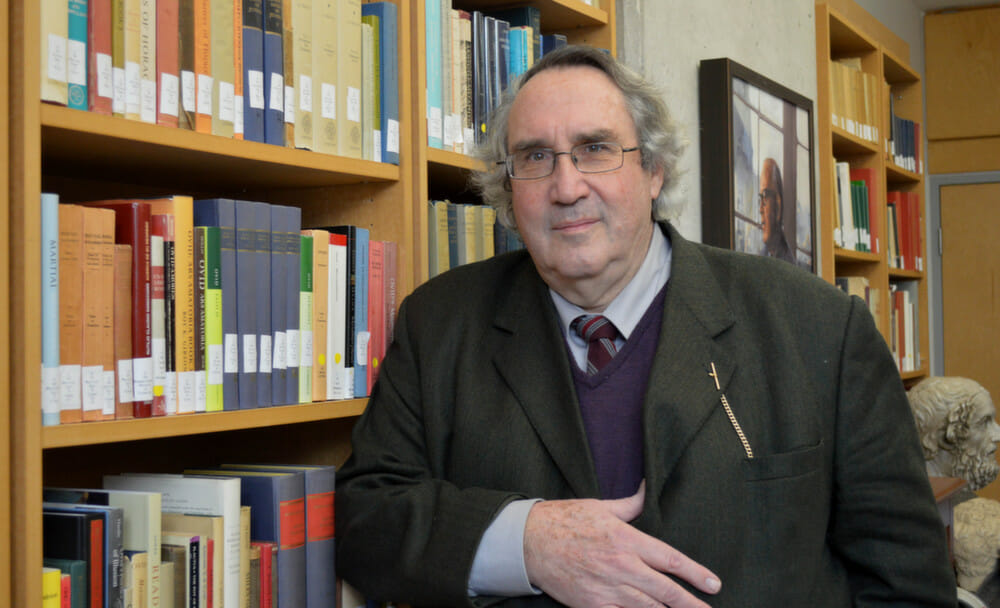
Under Dalhousie Libraries’ three proposed acquisitions budget models, major cuts to Dalhousie’s Faculty of Arts and Social Sciences (FASS) were suggested prior to any consultation of department heads.
Wayne Hankey, chair of Dalhousie’s classics department and a professor for over 40 years, is proposing a fourth solution.
The three models laid out by Dal Libraries all rely on weights controlled by 19 factors. Hankey says the weights and factors are matters of judgment, every one disputable, and the current models proposed will lead to the closing of academic programs.
“If in the end you come up with results that are crazy, or impossible, everyone will just say, ‘We’re actually going to have to go and look at real needs,’ ” says Hankey. “So why don’t we start there at the beginning?”
Hankey says he’s concerned that the consultations done by Dal Libraries involve the continual presentation of a top-down model, “as opposed to any kind of going around and talking to people on the ground and finding out what real needs, real use and real desires are.”
“We need to take stock of what do we really need, what do we have and how can we put those together in the way that will give the most for the least cost to what we know is really meaningful and important,” says Hankey.
His proposal, emailed to Dalhousie faculty and administrators, urges a detailed review of all resources being charged to FASS or its programs.
The proposal asks for electronic materials not wanted or needed by FASS and its programmes to be no longer acquired or charged to them. It says some resources being charged to FASS are almost certainly not needed or wanted at all.
While he acknowledges some faculties may wish to entirely switch to using eBooks, he says that is totally inappropriate for FASS in general.
“For our work, what is fundamental and irreplaceable and what we have in wonderful abundance in the old laboriously-collected, in many cases, outstanding collections in the Killam, are the great critical editions. The edition of Albert the Great or Aquinas or Cicero,” says Hankey.
He says some of these collections date back by a century, and unless they are maintained, the Killam will be a museum of a library.
“They are the basis for what we do, and they are our heritage. They are what we’re supposed to contribute as the centre of research and graduate teaching in this region,” says Hankey. “And that’s the stuff that we can’t seem to persuade [Dal Libraries] that has to be basic. And which is not that expensive.”
He says it is out of “habit” that budget cuts can happen to FASS before any departments are consulted as to their specific needs.
“If you look at things at this university, there’s almost nothing in it that can happen without cooperation. And there’s lots of dicta that come down from above, and are expensive, and consume lots of time and money and resources and go nowhere,” says Hankey.
“Nothing good happens out of them, because the people who can make them work are not convinced or persuaded.”
“This whole place depends upon cooperation and working together. And unless there’s some kind of real turnaround in that, so we don’t have this sense of these procrustean beds imposed upon us, to avoid actually dealing with us on the ground? Well—more and more things won’t work.”







